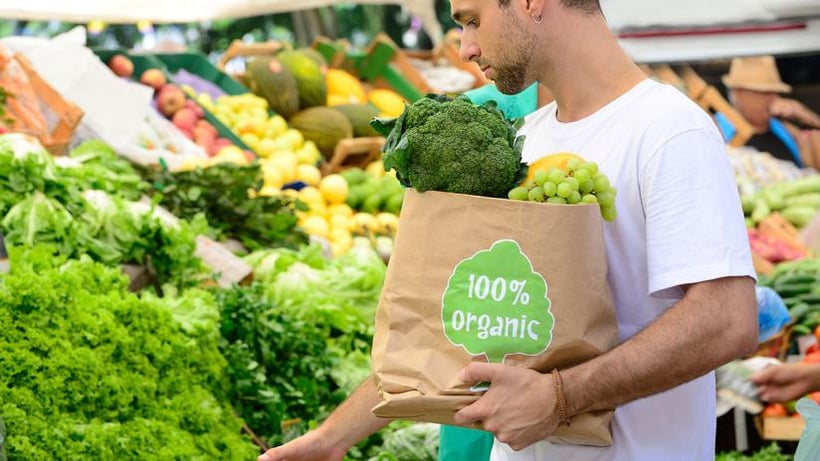
The latest sales figures show that consumers are more conscious than ever of whether the food they buy, prepare and consume is organic. Between 2000 and 2018, global sales of organic food increased by $77 billion (USD).
The word itself has several interpretations, and “organic” does not necessarily mean the food is safe to eat.
According to the Food and Agriculture Organization of the United Nations (FAO), organic is a way to grow food following certain rules and guidelines. When a food is certified organic, this means that specific standards were met throughout production, handling, processing and marketing.
Organic refers to the steps leading up to a food being bought and consumed — not to the final product.
Also, these stages and requirements may vary from country to country. For the most part, organic standards in Australia are owned and managed by private organisations.
What makes food organic?
Though the term “organic” has layered, international origins, its first meanings and practices were developed in northern areas such as Europe, North America and part of Asian including Japan. In the 1960s, the concept of organic farming was popularised, and movements sprung up that criticised the destruction caused by large-scale agriculture practices, and centred on small farms that produced and distributed food locally.
Organic agriculture is meant to address major worldwide problems like urbanisation and climate change. The FAO lists a few goals of organic agriculture, including better incomes for small-scale farmers, increased food security, environmental benefits and improved animal welfare.
Housed under the umbrella of “agroecology,” organic agriculture generally refers to a holistic production or production-management system that promotes and sustains the health of soils, ecosystems and people.
Misconceptions about organic food
Organic food labels are based on rules to prohibit or limit use of certain synthetic fertilisers and agrichemicals, mainly pesticides.
There are two common myths about organic agriculture:
1) Organic agriculture is free of pesticides
The prevalent understanding is that organic food is free of pesticides. This is not true, however, because a vast amount of pesticides in diets are created physiologically by the plants themselves. At high dosages, even these kinds of pesticides are harmful to human health. The major difference in organic agriculture is the types of pesticides used.
2) Organic food is safer than conventional food
An organic label is no guarantee of food safety. The label doesn’t refer to the characteristics of the end product. Both conventional and organic farming systems have the potential to produce safe food. In Australia, all foods — organic or not — have to be labelled in accordance with the Food Standards Code created by Food Standards Australia New Zealand (FSANZ), which protects the health and safety of consumers by maintaining a safe supply of food.
Organic food safety largely determined by consumer
It's often thought that organic food is tastier, healthier, better for the environment — and safer. However, it's necessary for all foods, no matter how they were grown or raised, to be assessed for food safety.
Contamination, e.g. a Salmonella outbreak, a pest infestation or growth of mould, can happen throughout any stage of food production, whether that food is organic or not. Proper food storage and preparation play a big part in making sure food is safe.
The popularity of certified organic food is growing, and it is predicted that this demand will increase significantly in the near future. For the health of the planet, its ecosystems and economies, organic is a beneficial choice, though it does not equal food safety. Food safety is a crucial part of health and it’s important that anyone preparing and handling food takes the correct measures to make sure food is safe to consume. The Australian Institute of Food Safety (AIFS) provides food safety training for all levels of responsibility through the Food Handler Certification course and Food Safety Supervisor course.





